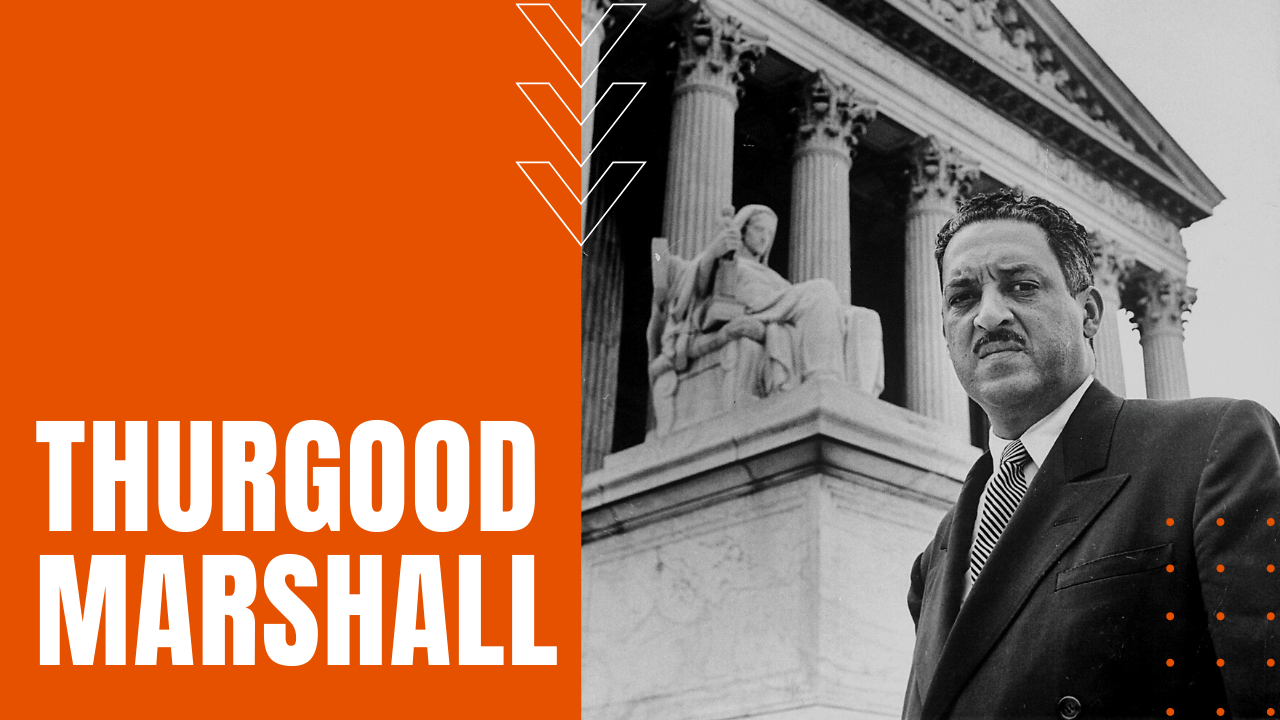Thurgood Marshall: Civil Rights Lawyer and Supreme Court Justice

Born in Baltimore in 1908, Thurgood Marshall grew up to attend Lincoln University in Chester County, Pennsylvania, where he married his first wife Vivian “Buster” Burey.
Rejected by the University of Maryland School of law due to the color of his skin, Marshall attended Howard University Law School, where mentor and dean, Charles Hamilton Houston, encouraged Marshall to use his law degree to affect civil rights reforms.
Early Supreme Court Cases
Graduating first in his class, Marshall opened a private practice law firm in Baltimore, where he successfully sued the University of Maryland in a 1935 suit regarding blatant race discrimination in their admissions policies. Joining the National Association for the Advancement of Colored People as a staff attorney, throughout the 1940s and 50s, Marshall argued 32 cases before the Supreme Court, winning a staggering 29 times, nearly all of them related to African American civil rights.
After suffering the loss of his beloved Vivian to cancer in 1955, Marshall married Cecelia Suyat shortly thereafter, raising two sons together as Marshall’s legal career continued to rise. By the time of his second marriage, Marshall was now recognized as one of the top attorneys in the nation, prompting President John F. Kennedy to appoint Marshall to the U.S. Court of Appeals in 1961, followed by President Lyndon Baines Johnson, who made him the first Black Solicitor General in 1965.
Justice Thurgood Marhsall
Success begat success, when in 1967, after the retirement of Justice Thomas C. Clark, LBJ appointed Marshall as the first Black justice to the U.S. Supreme Court, proclaiming in a news broadcast that it was,
“the right thing to do, the right time to do it, and the right man and the right place.”
President LBJ
Over his 24 years as a Supreme Court justice, Marshall became a staunch advocate for civil rights and affirmative action, as well as enacting laws that limited criminal punishment, which he felt was heavily weighted against African Americans. As he once proclaimed about his legal decisions, “You do what you think is right and let the law catch up.”
When his health began to fail in 1991, Marshall stepped down from the Supreme Court, prompting President George H. W. Bush to appoint Justice Clarence Thomas as Marshall’s replacement. Marshall died two years later from congestive heart failure at 84 years of age, forever silencing one of the clearest voices for civil rights reform in the history of the United States.
